Since our founding in 1975, Prader-Willi Syndrome Association | USA (PWSA | USA) has been more than an organization. We have been a trusted voice, advocate, and lifeline for families and individuals affected by Prader-Willi syndrome. Just as our mission has grown and adapted to meet the needs of our community, our logo and tagline have also evolved over the years to reflect strength, resilience, and hope.
From our very first emblem to our current butterfly symbol, each stage of PWSA’s visual identity tells a story about our past, our progress, and our promise for the future.
1982: Our First Official Emblem
In May 1982, PWSA unveiled its very first official emblem, created by Dr. Delfin Beltran. At the time, then Executive Director Marge Wett proudly wrote in The Gathered View (Vol. 8, No. 3): “I am sure you will agree this makes a nice looking addition for us to use in our materials.”
This was a milestone moment, providing the organization with a unifying symbol that could be used across programs and publications.

1994: A Fresh Start
By July 1994, the organization was ready for a refreshed identity as part of a broader revitalization effort. A Connecticut design firm was enlisted to help bring a new look to life. As The Gathered View (Vol. 19, No. 4) described:
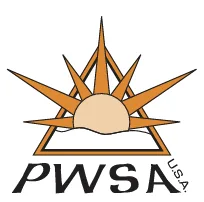
“Our new look needed to be simple yet elegant, warm and futuristic, and embody a concept that conveyed hope. Most importantly, our new look needed to have meaning and instant recognition.”
The logo was unveiled alongside a broader renewal of energy and purpose: a new office, a national brochure, a press kit, a fresh color palette, and most importantly, a vision for the future.
2007: “Still Hungry for a Cure”
In the fall of 2007, another logo redesign introduced the tagline “Still Hungry for a Cure.” The PWSA Board noted that this change was “part of a larger plan to develop a cohesive image or ‘brand’ for PWSA (USA) in the mind of the public” (The Gathered View, Vol. 32).
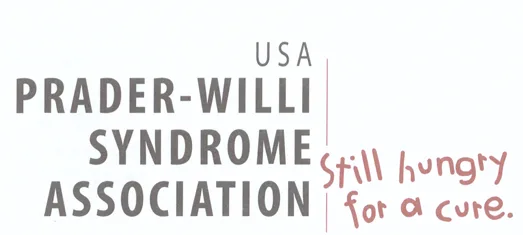
This identity reflected the urgency and determination of the time — highlighting the need for answers, treatments, and progress for the PWS community.
2017: The Butterfly Takes Flight
One of the most meaningful transitions came in March 2017, when PWSA introduced the butterfly logo and our current tagline: “Saving and Transforming Lives.”
The Adults with PWS Advisory Board played an important role in shaping this change. As Shawn Cooper (51, living with PWS) explained:
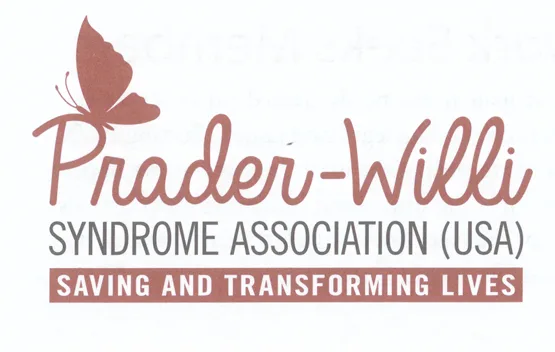
“We didn’t like the words ‘Hungry for a Cure.’ So, we finally got them to change the logo. They changed it to ‘Saving and Transforming Lives,’ and that’s much better.”
The butterfly was chosen as a symbol of endurance, transformation, and beauty. As shared in The Gathered View (Mar–Apr 2017):
“The butterfly in the logo tied into our vision of representing PWS and PWSA | USA: a butterfly is a beautiful creature that has gone through a long, enduring journey to transform into something beautiful. There may be challenging times; yet beyond those times, beauty, hope and love can happen.”
2020: A Modern Refresh
In January 2020, PWSA gave its logo a refreshed look with updated fonts and colors, while keeping the butterfly as the centerpiece. This modern design reflected our growth as an organization while staying rooted in our community’s identity.
2025: Celebrating 50 Years
To mark our 50th anniversary in January 2025, we proudly introduced an updated logo featuring a golden “50.” This addition celebrates the organization’s five decades of service, support, and hope.
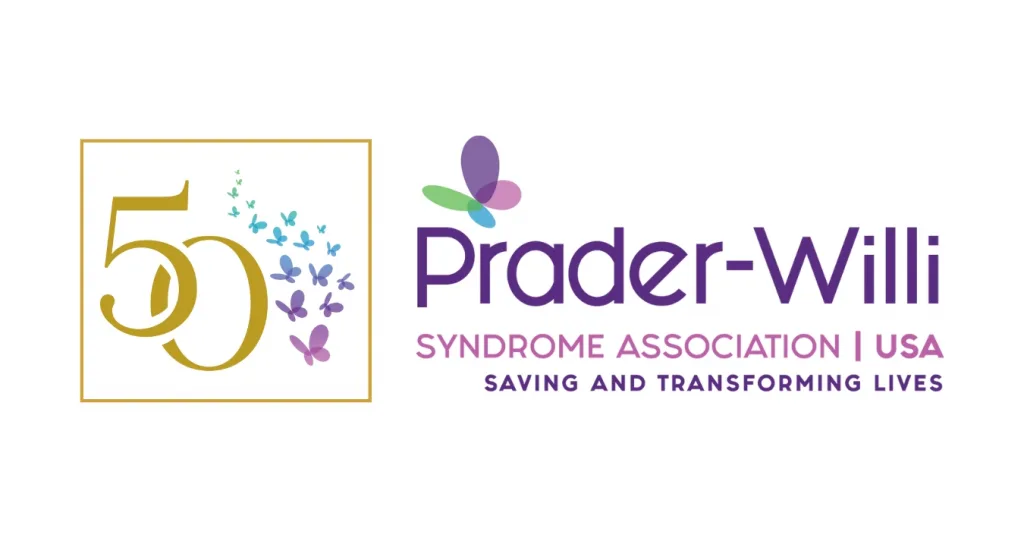
Looking Back, Moving Forward
Like the butterfly, PWSA’s logo has transformed over time, each version reflecting the needs and spirit of the community we serve. Yet through all of these changes, one thing has remained constant: our unwavering commitment to serving families, sharing hope, and creating a brighter future for those affected by Prader-Willi syndrome.
Share this!

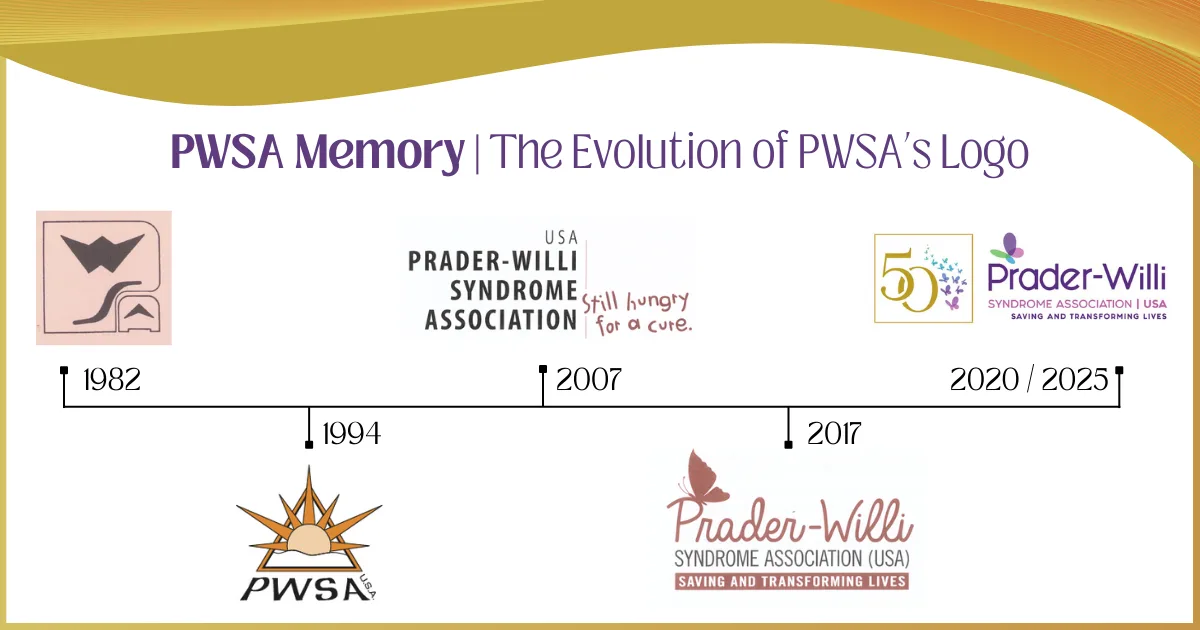
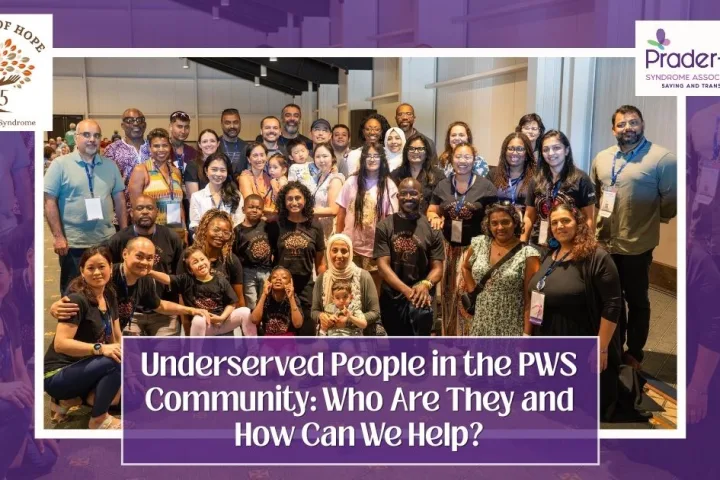
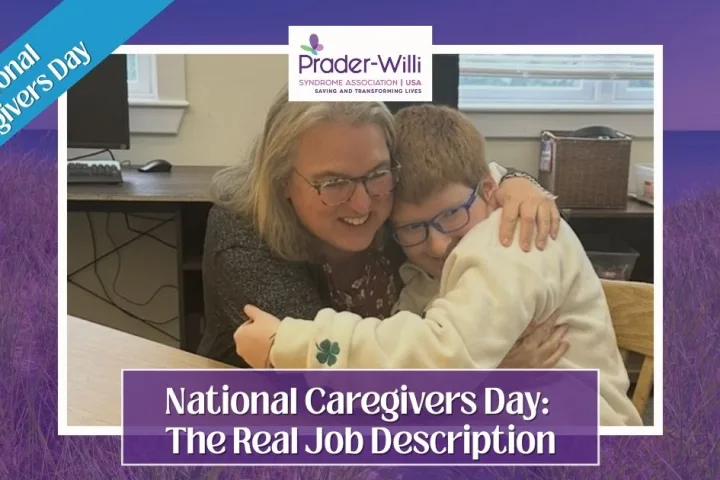

 Perry A. Zirkel has written more than 1,500 publications on various aspects of school law, with an emphasis on legal issues in special education. He writes a regular column for NAESP’s Principal magazine and NASP’s Communiqué newsletter, and he did so previously for Phi Delta Kappan and Teaching Exceptional Children.
Perry A. Zirkel has written more than 1,500 publications on various aspects of school law, with an emphasis on legal issues in special education. He writes a regular column for NAESP’s Principal magazine and NASP’s Communiqué newsletter, and he did so previously for Phi Delta Kappan and Teaching Exceptional Children. Jennifer Bolander has been serving as a Special Education Specialist for PWSA (USA) since October of 2015. She is a graduate of John Carroll University and lives in Ohio with her husband Brad and daughters Kate (17), and Sophia (13) who was born with PWS.
Jennifer Bolander has been serving as a Special Education Specialist for PWSA (USA) since October of 2015. She is a graduate of John Carroll University and lives in Ohio with her husband Brad and daughters Kate (17), and Sophia (13) who was born with PWS. Dr. Amy McTighe is the PWS Program Manager and Inpatient Teacher at the Center for Prader-Willi Syndrome at the Children’s Institute of Pittsburgh. She graduated from Duquesne University receiving her Bachelor’s and Master’s degree in Education with a focus on elementary education, special education, and language arts.
Dr. Amy McTighe is the PWS Program Manager and Inpatient Teacher at the Center for Prader-Willi Syndrome at the Children’s Institute of Pittsburgh. She graduated from Duquesne University receiving her Bachelor’s and Master’s degree in Education with a focus on elementary education, special education, and language arts. Evan has worked with the Prader-Willi Syndrome Association (USA) since 2007 primarily as a Crisis Intervention and Family Support Counselor. Evans works with parents and schools to foster strong collaborative relationships and appropriate educational environments for students with PWS.
Evan has worked with the Prader-Willi Syndrome Association (USA) since 2007 primarily as a Crisis Intervention and Family Support Counselor. Evans works with parents and schools to foster strong collaborative relationships and appropriate educational environments for students with PWS. Staci Zimmerman works for Prader-Willi Syndrome Association of Colorado as an Individualized Education Program (IEP) consultant. Staci collaborates with the PWS multi-disciplinary clinic at the Children’s Hospital in Denver supporting families and school districts around the United States with their child’s Individual Educational Plan.
Staci Zimmerman works for Prader-Willi Syndrome Association of Colorado as an Individualized Education Program (IEP) consultant. Staci collaborates with the PWS multi-disciplinary clinic at the Children’s Hospital in Denver supporting families and school districts around the United States with their child’s Individual Educational Plan. Founded in 2001, SDLC is a non-profit legal services organization dedicated to protecting and advancing the legal rights of people with disabilities throughout the South. It partners with the Southern Poverty Law Center, Protection and Advocacy (P&A) programs, Legal Services Corporations (LSC) and disability organizations on major, systemic disability rights issues involving the Individuals with Disabilities Education Act (IDEA), Americans with Disabilities Act (ADA), and the federal Medicaid Act. Recently in November 2014, Jim retired.
Founded in 2001, SDLC is a non-profit legal services organization dedicated to protecting and advancing the legal rights of people with disabilities throughout the South. It partners with the Southern Poverty Law Center, Protection and Advocacy (P&A) programs, Legal Services Corporations (LSC) and disability organizations on major, systemic disability rights issues involving the Individuals with Disabilities Education Act (IDEA), Americans with Disabilities Act (ADA), and the federal Medicaid Act. Recently in November 2014, Jim retired.